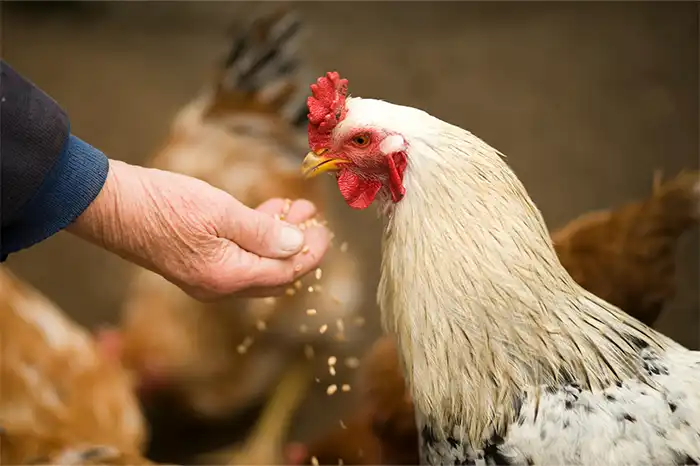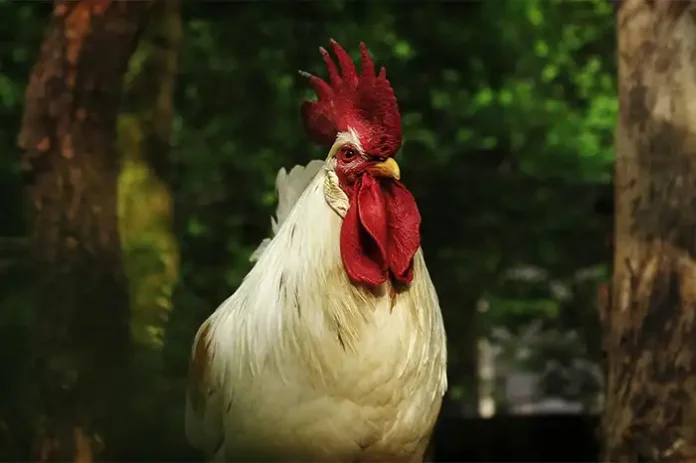Backyard chickens have long been more than egg and meat providers, leaving a lasting impact on cultures, economies, and societies worldwide. From ancient rituals to modern urban homesteads, these birds continue to shape human progress and captivate us. Why have they remained so significant?
This exploration delves into the cultural and historical importance of backyard chickens. We’ll visit their ancient origins, analyze their role in various traditions, and understand why these birds are thriving once more in backyards everywhere.
Whether you’re a seasoned chicken keeper or simply looking to learn more, this journey will deepen your appreciation for their contribution to human history.
The Ancient Origins of Backyard Chickens
Backyard chickens have an incredible history that stretches back thousands of years. From their beginnings as junglefowl in Southeast Asia to their revered status in ancient civilizations, chickens have evolved to become integral to human life.
Today, heritage and ornamental breeds such as the playful lavender Orpington chickens—known for its striking lavender-colored feathers—connect us to their long-standing significance.
1. The First Steps of Domestication
The story of chickens dates back to the domestication of the red junglefowl in Southeast Asia as early as 6000 BCE. Initially, these birds were not kept for food but for cockfighting and religious ceremonies.
2. Spread and Integration into Global Cultures
As trade routes expanded, chickens were introduced to new regions, quickly adapting to different climates and cultures. In ancient Egypt, chickens were associated with fertility and renewal. Meanwhile, Greeks and Romans associated them with vigilance and new beginnings, employing roosters for divination practices.
It was only after chickens became a reliable source of eggs and meat that they cemented their role in rural communities, paving the way for backyard chicken keeping as a cornerstone of self-sufficient living.
| Fact: The oldest known chicken bones were discovered in China and date back to approximately ∼10,000 B.P., suggesting that chicken domestication may have occurred even earlier than previously thought. |
Symbolism and Folklore Across Cultures
Chickens have carried deep symbolic meaning in numerous societies throughout history. From spiritual beliefs to everyday language, these birds have left their mark on human culture in ways that go far beyond sustenance.
1. Global Symbolism of Chickens
In Asia, roosters are symbols of punctuality, prosperity, and fidelity. They feature prominently in Chinese mythology, even earning a place among the 12 Chinese zodiac animals.
In African traditions, chickens hold spiritual value. They are often used in rituals to appease spirits or communicate with ancestors. Similarly, in Native American culture, chickens symbolize protection and nurturing in certain practices.
2. Western Influence on Language
In Western traditions, chickens have shaped common expressions and idioms. Phrases like “Don’t count your chickens before they hatch” and “chicken out” emphasize themes of caution and timidity, showing the influence of these birds on everyday speech and thought.
From Industrialization to a Backyard Revival

The world’s relationship with chickens dramatically changed in the 20th century. With the rise of urbanization and industrial farming, traditional backyard flocks became far less common. However, modern trends toward sustainability and self-reliance have revived interest in keeping chickens.
1. The Industrial Era
As urban areas grew, industrial agriculture supplanted traditional small-scale farming. Large-scale poultry operations became standard, disconnecting people from the once-common practice of raising chickens at home. This transition emphasized efficiency but led to a loss of personal connection to food sources.
2. The Modern Renaissance
In recent years, backyard chickens have experienced a dramatic resurgence. People are increasingly motivated to embrace:
- Sustainability: Keeping chickens aligns with reducing carbon footprints and producing food locally.
- Food quality: Concerns about factory-farmed eggs and poultry have sparked interest in organic, free-range options.
- Self-sufficiency: Urban and suburban dwellers value independence in raising their food.
This renaissance has also encouraged an appreciation for breeds like the lavender Orpington, which reflect the beauty and diversity of backyard flocks.
The Role of Backyard Chickens in Modern Life
Beyond their rich history, backyard chickens benefit today’s keepers. These birds contribute to sustainable living, enrich gardens, and even improve mental health—proving their value far exceeds their eggs.
1. Benefits Beyond Food
Modern backyard chickens offer advantages that make them essential to sustainable living. These benefits include:
- Pest control: Chickens naturally hunt insects, helping to manage garden pests.
- Soil enrichment: Their droppings are excellent for composting, leading to healthier soil.
- Stress relief: Watching chickens interact can be therapeutic, reducing anxiety and stress.
- Education: For families, chickens provide valuable lessons about responsibility and the origins of food.
2. Symbols of Sustainability
The backyard chicken represents a broader movement toward environmental consciousness and sustainable lifestyles. By reducing food waste, supporting local food production, and fostering a connection to nature, chickens help their owners live more intentionally and responsibly.
| Tip: When starting your backyard flock, research local regulations and choose breeds that suit your climate and space requirements. Some docile breeds like Buff Orpingtons or Rhode Island Reds are excellent choices for beginners. |
A Timeless Companion
Backyard chickens aren’t just livestock—they’re symbols of resilience, sustainability, and a connection to nature. Across centuries, they’ve been sacred animals, cultural icons, and steadfast helpers in meeting human needs.
From ancient rituals to modern backyard flocks, these birds remain an enduring part of our collective history. They’ve adapted alongside us, reflecting our changing lifestyles while reaffirming our ties to tradition and sustainability.
So the next time you hear a chicken cluck, remember you’re hearing an echo of thousands of years of shared history. The humble backyard chicken has earned its place not just in our yards but in our cultural heritage—and perhaps in our hearts as well.



